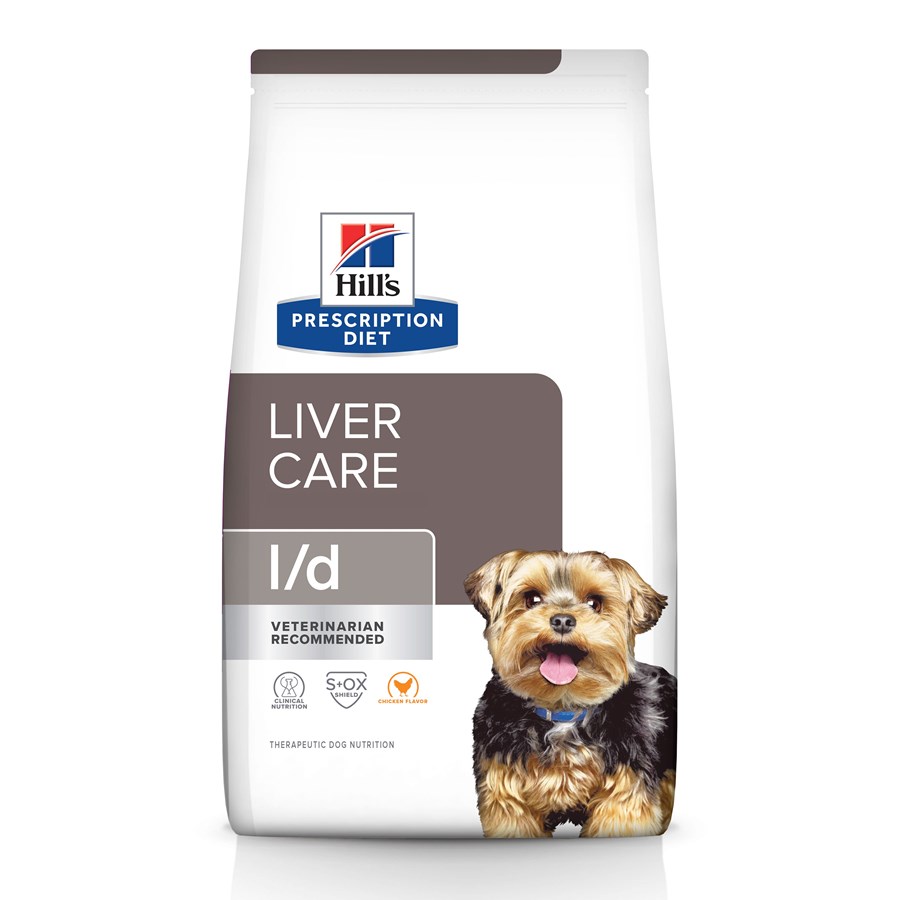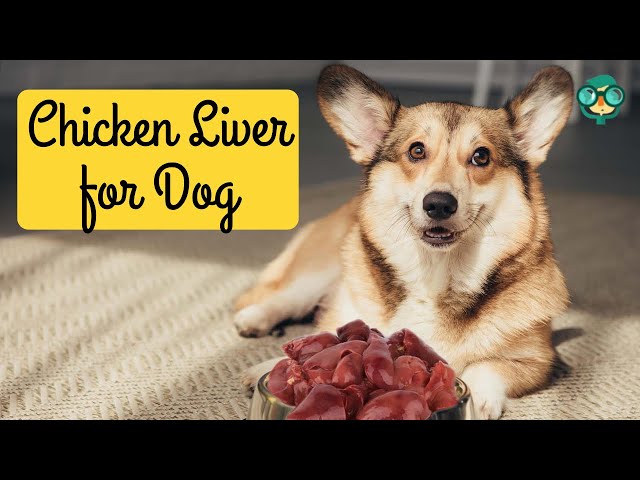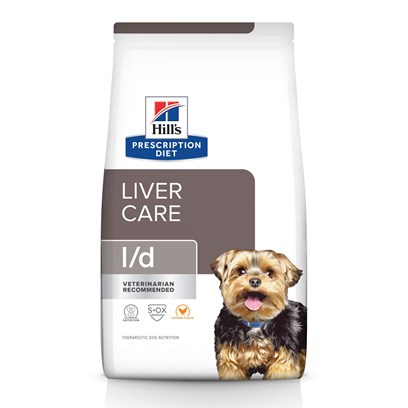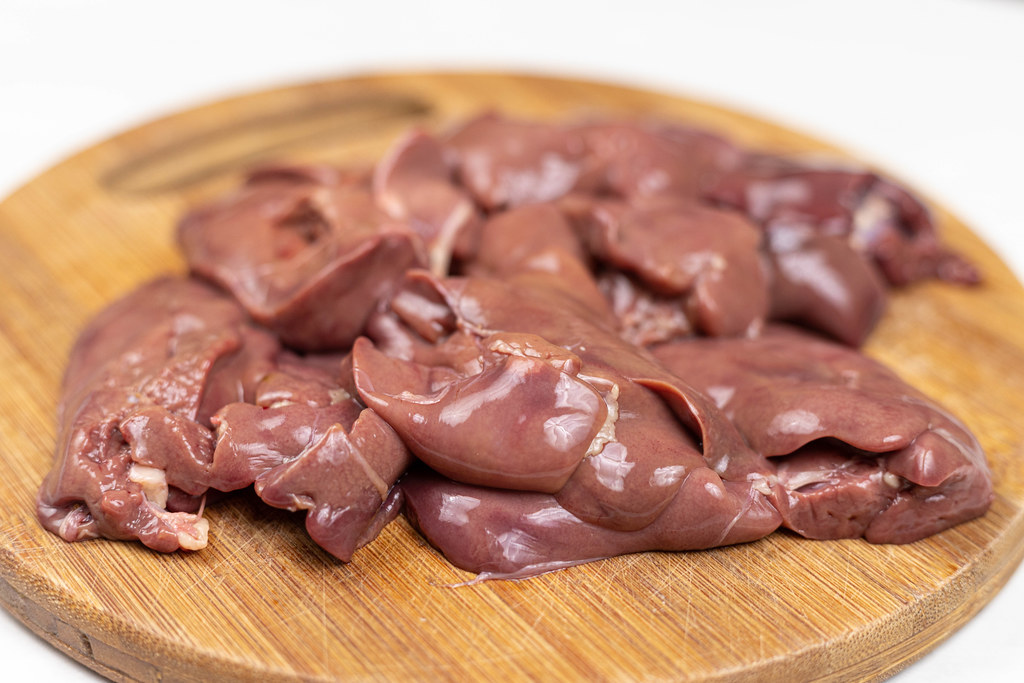Introduction

Chicken liver has become a popular choice among dog owners looking to provide their furry friends with a nutritious and tasty treat. However, before incorporating chicken liver into your dog’s diet, it is important to understand the benefits and risks associated with this culinary addition. In this article, we will explore the nutritional value of chicken liver, the proper handling and cooking techniques, as well as dog-specific concerns and considerations. We will also seek veterinary insights on the matter, providing you with professional recommendations and guidelines for including chicken liver in your dog’s diet. So let’s dive in and discover the canine culinary considerations when it comes to feeding chicken liver to our beloved pets.
Overview Of Feeding Chicken Liver To Dogs
Feeding chicken liver to dogs can be a beneficial addition to their diet, but it is important to do so in moderation. Chicken liver is rich in nutrients such as protein, vitamins, and minerals, which can support your dog’s overall health and well-being. However, due to its high fat and vitamin A content, portion control is essential. It is recommended to consult with a veterinarian to determine the appropriate serving size for your dog based on their size and nutritional needs. By incorporating chicken liver into their meals in appropriate amounts, you can offer your furry friend a nutritious and tasty treat.
Benefits And Risks Associated With Chicken Liver In Canine Diet
Chicken liver offers several benefits when included in a canine diet. It is a rich source of high-quality protein, which helps support muscle growth and maintenance. Additionally, it contains essential vitamins such as vitamin A, vitamin B12, and vitamin K, which contribute to a dog’s overall health and well-being. However, there are risks that need to be considered. Chicken liver is high in fat, so it should be given in moderation to avoid weight gain and digestive issues. It also contains high levels of vitamin A, which can be toxic in large amounts. Therefore, portion control is crucial to prevent vitamin A toxicity. Consulting with a veterinarian is highly recommended to determine the appropriate serving size and frequency of chicken liver in a dog’s diet.
Nutritional Value Of Chicken Liver For Dogs

Chicken liver is packed with essential nutrients that offer numerous benefits for dogs. It is a rich source of protein, which aids in muscle growth and development. Additionally, chicken liver is abundant in vitamins and minerals that contribute to overall canine health. It contains high levels of vitamin A, vitamin B12, and vitamin K, which support immune function, promote healthy eyesight, and assist in blood clotting. Moreover, chicken liver is a great source of iron, which is vital for oxygen transportation in the body. Including chicken liver in a dog’s diet can provide a significant nutritional boost and support their overall well-being.
Protein And Amino Acids Content In Chicken Liver
Chicken liver is a excellent source of protein for dogs, containing approximately 20g of protein per 100g serving. This high protein content is essential for muscle growth and development in dogs. Additionally, chicken liver is rich in essential amino acids that are vital for various bodily functions. These amino acids include lysine, methionine, and histidine, among others. Amino acids are the building blocks of proteins and play a crucial role in maintaining optimal health and promoting overall well-being in dogs. By including chicken liver in their diet, dog owners can ensure that their furry friends are receiving an adequate amount of protein and essential amino acids.
Vitamins And Minerals In Chicken Liver And Their Benefits For Dogs
Chicken liver is not only a rich source of protein and amino acids but also packed with essential vitamins and minerals that offer numerous benefits for dogs. It is particularly abundant in vitamin A, which promotes healthy vision and supports the immune system. Additionally, chicken liver contains B vitamins, such as B12, which aids in nerve function and energy production. It also provides minerals like iron, zinc, and copper, contributing to healthy blood cells and overall well-being. Including chicken liver in a dog’s diet can help ensure they receive a spectrum of vital nutrients for optimal health.
Preparing And Cooking Chicken Liver For Dogs

To prepare and cook chicken liver for dogs, start by washing the liver thoroughly to remove any dirt or impurities. Then, trim off any excess fat or connective tissue. You can either boil or pan-fry the liver. Boiling is a simple method that helps retain the liver’s nutrients. Just place the liver in a pot with enough water to cover it and simmer until cooked through. Pan-frying, on the other hand, adds a delicious crispy texture. Cut the liver into small pieces and cook in a lightly oiled pan until browned. Remember to let the liver cool before serving it to your furry friend.
Proper Handling And Cooking Techniques For Chicken Liver
Proper handling and cooking techniques are important when preparing chicken liver for your dog. Start by washing the liver thoroughly to remove any dirt or impurities. Trim off any excess fat or connective tissue before cooking. There are different methods you can use to cook chicken liver for your dog. Boiling is a simple method that helps retain the liver’s nutrients. Just place the liver in a pot with enough water to cover it and simmer until cooked through. Pan-frying can add a delicious crispy texture. Cut the liver into small pieces and cook in a lightly oiled pan until browned. Remember to let the liver cool before serving it to your furry friend.
Recipes And Meal Ideas Incorporating Chicken Liver For Canine Diet
There are many delicious recipes and meal ideas that incorporate chicken liver into a dog’s diet. One simple option is to mix cooked, diced chicken liver with your dog’s regular kibble to add a nutritious and flavorful boost to their meal. Another idea is to make homemade liver treats by pureeing cooked chicken liver with a few other dog-friendly ingredients like oats or sweet potatoes, shaping them into small bite-sized pieces and baking them until they are firm. These homemade treats are a great way to reward your dog while providing them with the benefits of chicken liver.
Dog-specific Concerns And Considerations

When it comes to feeding chicken liver to dogs, there are some dog-specific concerns and considerations to keep in mind. One important factor is portion control and frequency. While chicken liver is a nutritious addition to a dog’s diet, it should be fed in moderation. Feeding too much liver can lead to an imbalance of nutrients and potentially cause digestive upset. Additionally, some dogs may have allergies or sensitivities to chicken liver. It is important to monitor your dog for any adverse reactions and consult with your veterinarian if needed. Always remember to introduce new foods gradually to prevent any digestive disturbances.
Portion Control And Frequency Of Feeding Chicken Liver To Dogs
Portion control and frequency are important factors to consider when feeding chicken liver to dogs. While chicken liver is a nutritious addition to their diet, it should be fed in moderation. It is recommended to offer a portion of 1-2 ounces of cooked chicken liver a few times a week for an average-sized dog. However, it’s crucial to consult with a veterinarian to determine the appropriate serving size for your specific dog. Feeding excessive amounts of chicken liver can lead to nutrient imbalances and potential digestive issues. Always remember to introduce new foods gradually and monitor your dog for any adverse reactions.
Allergies And Sensitivities Related To Chicken Liver Consumption In Dogs
Feeding chicken liver to dogs can potentially lead to allergies and sensitivities. Just like humans, dogs can have allergic reactions to certain foods, including chicken liver. It is important to monitor your dog for any signs of an allergic reaction, such as itching, vomiting, or diarrhea. If your dog exhibits any of these symptoms after consuming chicken liver, it is best to discontinue feeding it and consult with your veterinarian. They can help determine if the reaction is due to chicken liver or another factor and provide guidance on alternative protein sources for your dog’s diet.
Veterinary Insights On Feeding Chicken Liver To Dogs

Veterinarians generally agree that feeding chicken liver to dogs can be beneficial as it is a rich source of essential nutrients. However, it is important to exercise moderation and ensure proper cooking to avoid any health risks. Veterinarians recommend including chicken liver as part of a balanced and diverse diet, rather than solely relying on it as the main protein source. They also emphasize the importance of consulting with a veterinarian to determine the appropriate portion size and frequency of feeding chicken liver to dogs, taking into consideration their individual nutritional needs and any underlying health conditions.
Professional Recommendations And Guidelines For Including Chicken Liver In Dog’s Diet
Veterinarians and pet nutrition experts recommend including chicken liver as part of a balanced and diverse diet for dogs. They suggest feeding it in moderation and ensuring proper cooking techniques to avoid any health risks. The general guideline is to serve chicken liver as a supplement rather than the main protein source. Consultation with a veterinarian is crucial to determine the appropriate portion size and feeding frequency based on the individual dog’s nutritional needs and any underlying health conditions. Following these professional recommendations helps ensure that chicken liver contributes positively to a dog’s overall diet and well-being.
Consulting A Veterinarian For Individualized Diet Plans For Dogs
When it comes to creating an optimal and well-balanced diet for your dog, consulting with a veterinarian is crucial. Veterinarians are trained experts who can provide individualized advice and create a customized diet plan based on your dog’s specific needs, age, breed, and any underlying health conditions. They can assess your dog’s nutritional requirements, guide you on the appropriate portion sizes, and recommend the frequency of feeding chicken liver or any other food item. By consulting with a veterinarian, you can ensure that your dog receives the necessary nutrients and maintains good overall health. So, always consult the experts for the best diet plan for your furry friend.
Conclusion

In conclusion, incorporating chicken liver into a dog’s diet can provide valuable nutrition. However, it is important to approach this addition with caution and under the guidance of a veterinarian. By rotating liver with other protein sources and considering the individual needs of each dog, a balanced and diverse diet can be achieved. Proper preparation and monitoring of the dog’s response is crucial. Consulting with a veterinarian will ensure the best advice and guidance tailored to the specific needs of the dog, leading to a healthy and enjoyable diet.
Summary Of Key Points Regarding Feeding Chicken Liver To Dogs
Feeding chicken liver to dogs can provide several nutritional benefits. It is a rich source of protein, vitamins, and minerals that contribute to their overall health. However, it is important to feed liver in moderation and balance it with other protein sources to avoid excess vitamin A and copper intake. Proper handling and cooking techniques should be followed to ensure food safety. Individual factors such as the dog’s size, health profile, and allergies should be considered. Consulting with a veterinarian is essential to create a tailored diet plan that incorporates chicken liver appropriately.
Final Thoughts On Canine Culinary Considerations And Diverse Diet Options
In conclusion, feeding chicken liver to dogs can be a valuable addition to their diet, providing essential nutrients and promoting overall health. However, it is crucial to consider the individual needs and sensitivities of each dog. Moderation, proper handling, and cooking techniques are key in ensuring food safety and preventing nutrient imbalances. While chicken liver offers numerous benefits, it should be balanced with other protein sources to avoid excessive vitamin A and copper intake. Consulting with a veterinarian can help create a customized diet plan that incorporates chicken liver appropriately, while considering the dog’s specific dietary requirements.
FAQ About Chicken Liver To Dogs: Canine Culinary Considerations
Q: Can dogs eat chicken liver?
A: Yes, dogs can eat chicken liver in moderation as it can be a nutritious addition to their diet.
Q: Is chicken liver safe for dogs?
A: Chicken liver is safe for dogs when cooked thoroughly to avoid any risks of bacterial contamination.
Q: How much chicken liver can I feed my dog?
A: It is recommended to feed chicken liver to dogs in small amounts as a treat or part of their balanced diet, consulting with a vet for specific portion sizes.
Q: Are there any health benefits of feeding chicken liver to dogs?
A: Chicken liver is a good source of protein, vitamins A and B, iron, and other minerals that can benefit your dog’s overall health when included in moderation.
Q: Can feeding chicken liver to dogs cause any health concerns?
A: Overfeeding chicken liver can lead to vitamin A toxicity, digestive issues, or obesity, so it’s important to offer it in limited quantities and monitor your dog’s health.
Q: How should chicken liver be prepared for dogs?
A: Chicken liver for dogs should be cooked thoroughly, without seasoning or added ingredients, to ensure it is safe and easily digestible for your canine companion.

Duke City Kitchen, known for its fresh, simple, and delicious cuisine, has a rich history deeply rooted in the heart of the local food scene. Since its inception, Duke City Kitchen has been dedicated to providing an exceptional dining experience that celebrates the region’s flavors. Founded by a passionate group of food enthusiasts, Duke City Kitchen opened its doors with the vision of offering a welcoming space where people could gather to enjoy thoughtfully prepared meals made from the finest, locally sourced ingredients. This commitment to quality and community has been a driving force behind Duke City Kitchen’s success.